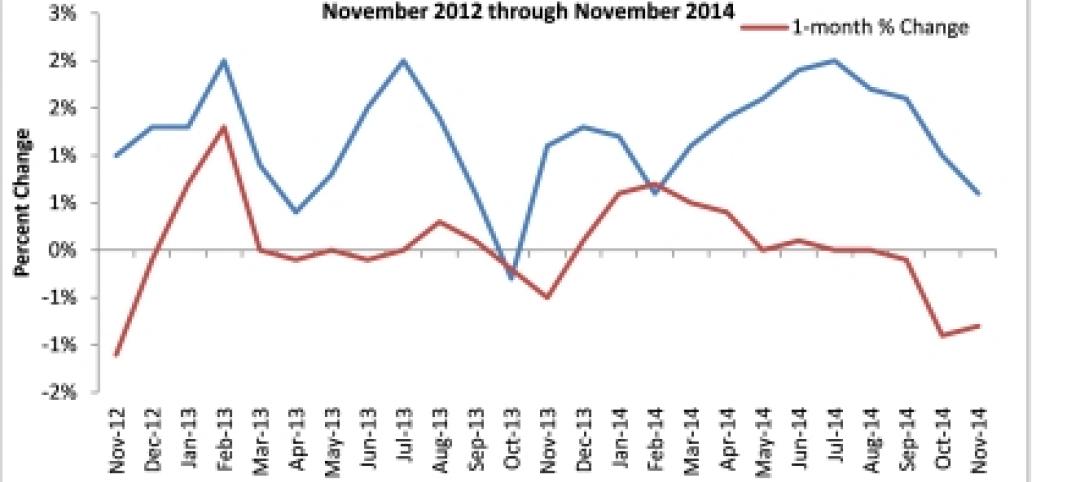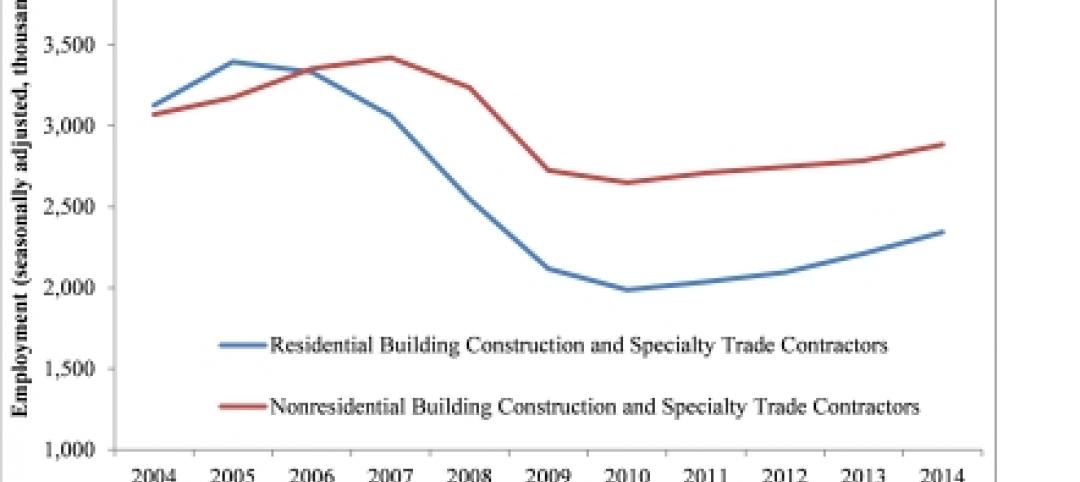SAN JOSE, CA (March 8, 2011) - CRS Roof Consultants, the leading Independent Roof Consulting Firm and authority on Commercial Roof System Investments reports industry losses on the consumption side of the equation. Buyers will be loosing between $2.6B and $5.6B annually, in roof system value by the year 2014.
According to a Freedonia Group, the US Roofing Industry is expected to expand by 2.4% through 2014 reaching nearly $18B in value. Additional reports suggest material cost will rise by 4.5% over the same time period.
Industry Life-Cycle Reports indicate roof systems worldwide fail on average in about 17 years. CRS Roof Consultants who tracts regional life-cycles says dryer states like California experience much shorter life-cycle averages, closer to 14 years for commercial roof systems.
Combined, the numbers represent a 15% to 32% in loss value on the purchase of 20/25 year assets respectively. "Total losses depend on buyer perceptions as to the expected Life-Cycle", said Kevin Cardoza, a Senior Analyst at CRS Roof Consultants. Most consumers (residential and commercial) expect to get closer to 25 years out of a 20 year roof system. Industry reports on premature failures as low as 12 years with an average of 17 years indicate a huge loss in value for buyers.
The installation of Roof Systems entail various components that are assembled to manufacture a complete roof system on-site at building locations. The only available controls close to an equivalent ISO9000 are certifications required by some material manufacturers, which only apply to contractors who offer the manufacturers' extended warranties.
Inefficiencies and generally accepted roof practices at the point of installation account largely for early water intrusion issues, said Dale Rowe (RRO), an Independent Registered Roof Observer and Inspector. Buyers leave the details up to contractors who write bid proposals where architects and general contractors reference warranty specifications but leave out critical roofing project details.
Statistically, roof systems installed in accordance with a set of defined performance rules under a complete roofing project specification outpace expectations and last from twenty to thirty years. Real Estate Investors, Management and Tenants whom adhere to roof system performance objectives tend to reduce long-term asset maintenance expense.
The ratio of Commercial Buildings and Annual Roofing Projects to the number of Independent Roof Consulting Firms suggest only a fraction of all Roof System Investments are based on Bid Specifications that define and hold contractors accountable for installation/labor warranty performance.
A well written Roofing Project Bid Specification can run $10K-$12K and save $60K-$80K on a Commercial Building but many private investors and smaller real estate investment firms view it as unnecessary expense. So, it's not unusual to see a barrage of abandoned rooftop assets from a history of rotating tenants and out of control roofing expense.
Only a few tenants (ie: Home Depot, Safeway, Best Buy, etc.) who's entire building is dedicated to product storage for immediate delivery implement Rooftop Asset Management Programs. Short term office and R&D building occupants seldom return rooftop assets (including that space below roof substrates) to their original condition as required by triple net leases.
Tight credit markets and reduced flipping have real estate investors moving more towards a value based approach to roofing. "We've seen increased demand for both Written Roofing Project Specifications and Project Management in the commercial markets but Home Owner Associations remain resistant to higher cost on those projects" said Construction Performance Builders, Inc. President, Terrence Osuga.
About CRS Roof Consultants
CRS Roof Consultants, the nations leading Independent Roof Consulting Firm. Established in 1986, its headquarters remain in the heart of Silicon Valley (San Jose, California) where it services national clients. As an authority on Commercial Roof System Investments, CRS Roof Consultants publishes information and technical papers that outline and educate readers on best roofing practices for property owners, investors, asset managers and property managers in the commercial real estate industry.
For more information about CRS Roof Consultants, the Roof Inspection White Paper or to obtain a free copy, visit: http://www.CRSRoofConsultants.comhttp://www.CRSRoofConsultants.com
Related Stories
| Jan 15, 2015
Construction materials prices fall in November
Construction input prices dipped 1.4% during the final month of 2014 and are down nearly 1% on a year-over-year basis, according to the Jan. 15 producer price index release from the U.S. Department of Labor.
| Jan 15, 2015
Libeskind unveils 'zig zag' plan for recreational center near Vilnius ski area
Perched on the highest peak between Vilnius' historic quarter and downtown, the Vilnius Beacon will be a hub for visiting skiers and outdoor enthusiasts.
| Jan 14, 2015
10 change management practices that can ease workplace moves
No matter the level of complexity, workplace change can be a challenge for your client's employees. VOA's Angie Lee breaks down the process of moving offices as efficiently as possible, from creating a "change team" to hosting hard-hat tours.
| Jan 13, 2015
Steven Holl unveils design for $450 million redevelopment of Houston's Museum of Fine Arts
Holl designed the campus’ north side to be a pedestrian-centered cultural hub on a lively landscape with ample underground parking.
| Jan 9, 2015
Santiago Calatrava talks with BBC about St. Nicholas Church on Ground Zero
Calatrava reveals that he wanted to retain the “tiny home” feel of the original church building that was destroyed with the twin towers on 9/11.
| Jan 9, 2015
Nonresidential construction hiring surges in December 2014
The U.S. construction industry added 48,000 jobs in December, including 22,800 jobs in nonresidential construction, according to the Bureau of Labor Statistics preliminary estimate released Jan. 9.
| Jan 9, 2015
10 surprising lessons Perkins+Will has learned about workplace projects
P+W's Janice Barnes shares some of most unexpected lessons from her firm's work on office design projects, including the importance of post-occupancy evaluations and having a cohesive transition strategy for workers.
| Jan 8, 2015
The future of alternative work spaces: open-access markets, co-working, and in-between spaces
During the past five years, people have begun to actively seek out third places not just to get a day’s work done, but to develop businesses of a new kind and establish themselves as part of a real-time conversation of diverse entrepreneurs, writes Gensler's Shawn Gehle.
Smart Buildings | Jan 7, 2015
NIBS report: Small commercial buildings offer huge energy efficiency retrofit opportunities
The report identifies several barriers to investment in such retrofits, such as the costs and complexity associated with relatively small loan sizes, and issues many small-building owners have in understanding and trusting predicted retrofit outcomes.
| Jan 7, 2015
University of Chicago releases proposed sites for Obama library bid
There are two proposed sites for the plan, both owned by the Chicago Park District in Chicago’s South Side, near the university’s campus in Hyde Park, according to the Chicago Sun-Times.
















